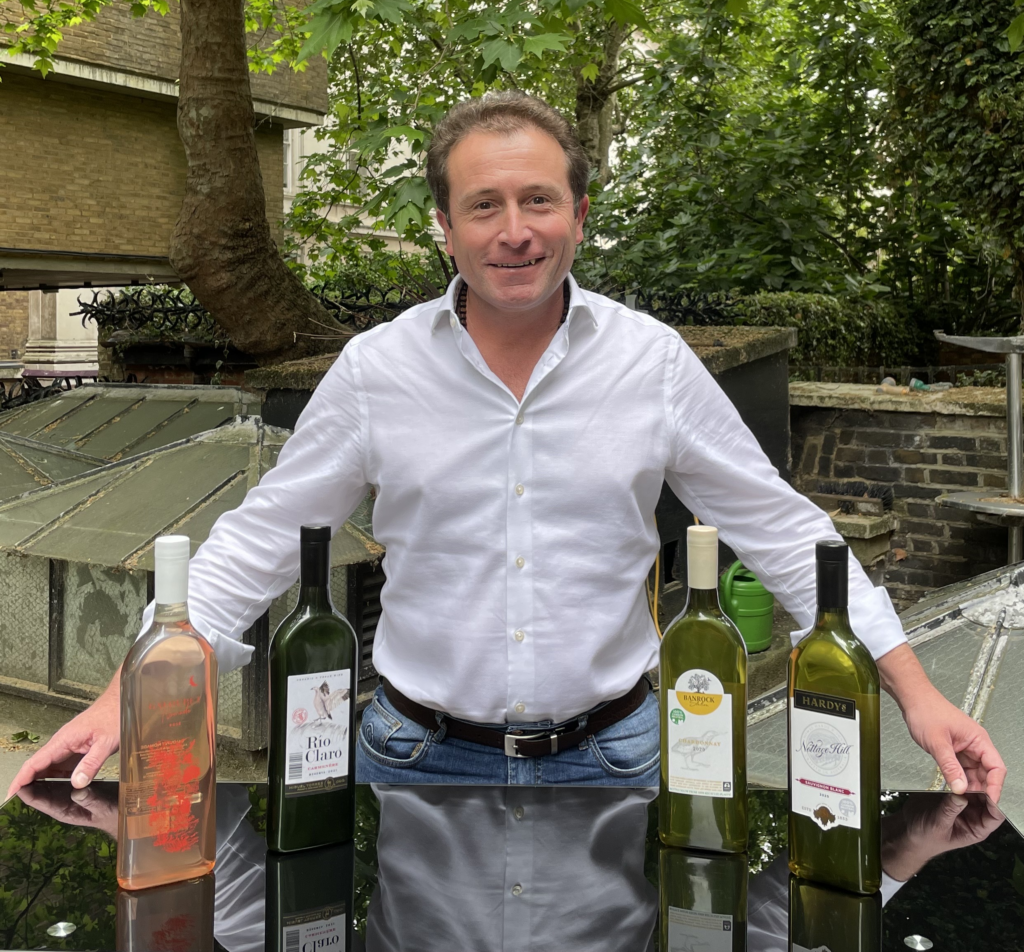
Sustainability and more specifically reducing carbon footprint is a priority across all sectors with businesses constantly on the hunt for the latest eco-friendly product packaging solutions.
Garçon Wines was the first company to actively push the idea of letterbox packaging for wine bottles , seeing it as a convenient, carbon-cutting way of reaching customers directly.
The creation of a flat, recycled plastic wine bottle has enabled Garçon Wines to change the way its wines are bottled and delivered.
The practical eco-flat bottles proved to be a hit with consumers and in March this year, one the Garçon Wines founders launched its spin-off eco-flat bottle packaging company called Packamama.
Packamama is already providing its innovative bottles to brands such as Accolade Wines, LVMH, and Miguel Torres Chile and Packaging Gateway’s Ryan Ellington spoke to CEO and founder Santiago Navarro recently to find out what the packaging industry can learn from his sustainable innovation.

Why did you launch Packamama?
The eco-flat bottle was invented by two entrepreneurs who were trying to find a better way of delivering wine to UK homes. Later, I launched Packamama as I believed this bottle innovation could serve a greater purpose for the wine industry.
Wine is often shipped in outdated packaging and the obvious place to innovate is with the packaging itself. A round glass bottle is, at its best, packaging from the 19th century, however even today, most wine is still bottled in the same way. We were trying to come up with a product that looked beautiful in the eyes of a consumer, but also made it easier to ship it to consumer’s homes.
Our Garçon Wines brand introduced our flat wine bottles to the world originally and the response was extremely positive, so we decided to offer it to other wine companies under a new packaging brand name.
What are your aims for the Packamama brand?
Packamama’s aim is to innovate within the packaging space of the drinks industry and make it ready for the challenges the world faces within the 21st century. The climate crisis is by far the most important and critical challenge so the aim is to create a step-change, as opposed to an incremental innovation.
Some might argue that lightweighting a glass bottle is innovation and should be called sustainable packaging, but the maximum you will ever get out of that is a 15% carbon footprint reduction. We need to push all technologies to the max, use the best materials in the best models, use recycled PET, which can be recycled afterwards, and maximise packaging efficiency.
The packaging industry is moving towards a circular economy so why did you decide to package wine with plastic and not glass?
We should ensure the products we are making and bringing back around in a circular model don’t have an unnecessary carbon footprint. Glass can be recycled but every time you produce a product from glass and move it, then move it to be recycled, you’re using a totally unnecessary amount of energy.
Yes, we should be circular, but we should choose the right horses for the courses and that’s really important. Glass is a phenomenal material, but when a product is produced a fair distance from where it is consumed, PET and rPET outstrips any benefits of glass.
For us, recycled PET is far superior to anything else for products that move a great distance in bottles and don’t need to have a long shelf life. We should be recycling in circular economies and using the best recycling technologies like depolymerisation to create better bottles.
What are the benefits of providing packaging that can fit through a letterbox?
The UK is a big country with a valuable economy from a commercial perspective and there is this wonderful aperture in the door that should take more than letters. There are large financial and environmental costs to failed deliveries. That’s why some companies have invented smart doorbells so deliveries can happen when customers are not at home.
The key is to explore different delivery, returns and recycling models and mechanisms that are low carbon. UK data suggests there is a £1.6bn cost for failed deliveries. If you have that huge financial cost you’re going to have a high carbon cost because the high financial cost comes from trucks having to go back and attempt redelivery.
This makes letterbox delivery important and we are seeing more efficient deliveries because of it. As we buy more online and have things delivered to us, we cannot afford to have failed deliveries as they carry unnecessary carbon and cash costs.
What lessons can the packaging industry learn from Packamama’s aim to work towards a more sustainable environment?
Packaging companies should use data and avoid making kneejerk decisions. Look at the data for the product you are shipping and decide what is the best packaging format from the three pillars- material choice, design and post-use recyclability.
Try to use entirely recycled material where possible. If you can, try to use an entirely recycled material base as then you’ll have a much lower carbon footprint. Use data to determine if it’s working and conduct a life cycle assessment (LCA) with your packaging so you can see what difference you’ll be able to make.



